Introduction
Many pet parents don’t know that everyday foods can be dangerous to cats and dogs. This guide outlines toxic foods for each species and offers safe alternatives using The Brooklyn product range to support feeding and hydration routines.
1. Common Toxic Foods for Dogs & Cats
Toxic for Both Cats and Dogs:
- Chocolate, caffeine, tea – contains methylxanthines causing vomiting, seizures.
- Grapes & raisins – can cause kidney failure.
- Onion, garlic, chives – lead to blood disorders like anaemia.
- Xylitol sweetener (gum, sugar‑free snacks) – rapid insulin release, hypoglycaemia, liver failure.
- Alcohol & yeast dough – dangerous fermentation, alcohol poisoning.
- Macadamia nuts – especially toxic to dogs.
- Avocado (persin) – more harmful to birds and some animals but dogs and cats may also suffer.
- Certain mushrooms – some wild types cause liver or renal damage.
Particularly Toxic to Cats:
- Raw fish, raw eggs – risk salmonella, biotin deficiency.
- Dairy – many cats are lactose intolerant, causing upset stomach.
- High‑fat cooked foods or bones – risk pancreatitis or gastrointestinal injury.
2. Safer Feeding Practices
- Stick to pet‑specific diets recommended by the vet.
- When offering human food, keep it limited to safe options like lean cooked meats (no seasoning), plain cooked rice or pumpkin.
- Ensure no garlic/onion‑based seasonings.
- Avoid snacks with sweeteners or moulds.
3. Keeping Pets Hydrated Safely
- Use Brooklyn® Tuff Dog Bowl for dogs and similarly sized bowls for cats—stainless steel, non-slip and temperature‑retaining.
- For cat water bowls, choose shallow wide bowls to reduce whisker fatigue. The Brooklyn cat water bowl options deliver safely designed bowls.
- Brooklyn® Pet Hydrate Bottle is ideal for hydrating dogs during outings; ensures clean water without contamination.
4. Avoiding Cross‑Contamination
- Never let cats or dogs share your plate.
- Always store leftovers securely—dogs are quick to find dropped chocolate or table scraps.
- Wash bowls and bottles daily; use machine‑washable products like Brooklyn throw or bed sheets to keep surroundings hygienic.
5. How The Brooklyn Supports Safe Feeding & Hydration
- Our Tuff Dog Bowl and cat bowls are made from stainless steel—easy to clean, non‑toxic materials. Non‑slip base prevents spills
- The Pet Hydrate Bottle reduces the risk of contamination when travelling—just fill with fresh water, no open bowls exposed.
- Machine‑washable pet blankets and beds minimise bacteria buildup, helping maintain hygiene.The Brooklyn.
6. What to Do If Your Pet Ingests Something Toxic
- Contact your vet immediately—know the poison control numbers in NZ.
- Collect the packaging or identify the food to help the vet assess risk.
- Do not induce vomiting unless advised by a professional.
- Monitor symptoms: vomiting, drooling, tremors, lethargy, seizures or collapse.
7. Additional Safe Feeding Tips
- Always supervise pets during meals or when human food is accessible.
- Feed treats like small cubes of cooked chicken or plain carrot, not processed or seasoned.
- Provide clean fresh water multiple times a day.
- Rotate feeding bowls monthly and thoroughly sanitize insides.
Conclusion
Toxic foods pose serious risks to cats and dogs—but with awareness, careful feeding, and high‑quality, safe products, your pets can thrive. At The Brooklyn, we offer stainless steel bowls, insulated hydrate bottles, machine‑washable bedding and other pet‑safe accessories designed for hygiene and health. Visit our collections to build a safe feeding and hydration routine that protects your pet from harm.

